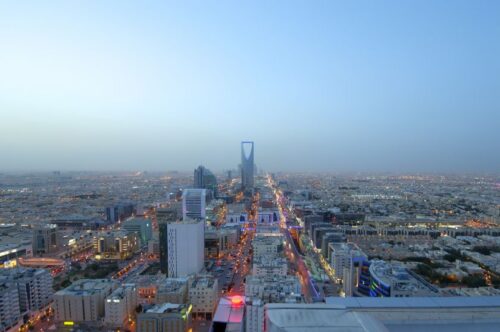This is a war that neither side is interested in, but from day to day it approaches – sometimes by small steps (announcements from senior figures) and sometimes by more significant steps. Hezbollah is challenging Israel, believing that certain gains against Israel can be scored at no cost – or at least no cost that Hezbollah would consider significant. And why is that? Because there is a balance of mutual deterrence between it and Israel. However, Nasrallah already mispredicted Israel’s response to the kidnapping in 2006, and I would advise him not to test our response again. Still, Israel must be prepared for any uncontrolled scenario, up to and including war — even war on several fronts — in order not to repeat the mistakes of the 2006 Lebanon War.
Background, and Nasrallah’s growing confidence
Hezbollah is increasingly daring, and the organization and Nasrallah are increasingly confident in themselves, to the point where it seems their arrogance may ignite a war even unintentionally. Why do they behave like that? And on what basis? First of all, the provocations didn’t start yesterday. Hezbollah has in fact been operating against Israel since the end of the 2006 Lebanon War, absorbing lessons and educating itself.
It has been steadily eroding Israel’s deterrence; we need mention no more than the antitank fire against an IDF ambulance next to the border community of Avivim (2019), which was a “response equation” result of the killing of Hezbollah operatives on Syrian territory; the challenge to Israel’s freedom of action in Lebanese airspace; and Hezbollah’s “achievements” regarding the “Karish” gas field. Its threats against “Karish” led to an agreement that gave away part of Israel’s territorial waters and enabled gas to be extracted for the future profit of Lebanon.
In the Megiddo incident of March 2023, a disaster was miraculously avoided. In July 2023, antitank fire was directed at the village of Ghajar. And of course, tents were set up in Israeli territory and posts were established neighboring and flanking the border fence area in violation of UN Resolution 1701. Residents of communities near Lebanon are harassed by noise, dazzling lasers, and more.
Why does Hezbollah behave like that? How is it in its interest?
Hezbollah has a number of considerations in mind. The first is the situation in Lebanon and the decline of Hezbollah’s standing there. Lebanon is a crumbling state, with no president, no central bank governor, no functioning institutions of government, and indeed no dependable electricity or running water. An ordinary person can’t withdraw money from a bank, and can’t even buy medicine because the shelves are empty. Ethnic tensions are growing between Shiites and Christians and between Muslims of various sects in the refugee camps. To spark a war, nothing is needed but one little provocation or one misstep by one of the parties.
The IDF can “return Lebanon to the Stone Age,” as Israel’s Defense Minister has said, but it doesn’t need to. Lebanon has nearly returned there by itself. Exceptions to the Lebanese plight are Hezbollah and its operatives. They enjoy regular payments at the end of each month, in cash dollars(!) from Iran. Many of Lebanon’s day-to-day difficulties resound in accusations and hatred against Hezbollah among the Lebanese public, because of Hezbollah’s responsibility for the lack of institutional functioning (through its insistent influence over the candidates that it fields). In addition, since Israel withdrew from Lebanon and certainly since the end of the Lebanon War, Hezbollah has lost its image as Lebanon’s protector and acquired the image of Lebanon’s destroyer (since the 2006 Lebanon War).
Justification for its existence under the banner of resistance, and the aim of deflecting accusations from itself to Israel, may be a motivation for Hezbollah’s provocations (portraying itself as a defender who is reconquering occupied lands). Moreover, Iran’s own considerations are there in the background and it may be that Nasrallah, who is a senior figure in the politics of Iran, of the region, and certainly of Lebanon, is “performing a part” under instructions from Iran within the campaign to wear Israel down and to distract Israel’s attention from Iran’s approach to the nuclear threshold and from its ongoing entrenchment in the area.
But that’s not all. Because of the combination of all those circumstances, plus the great internal crisis in Israeli society, the threats of refusal to report for duty, and the rift in the populace and the IDF, Hezbollah (wrongly) believes that it can challenge Israel and pay no price.
Hezbollah’s capabilities
Hezbollah is the world’s largest and most powerful terrorist organization. In fact, it is a terrorist organization with a state of its own and with capabilities that many states themselves don’t have. Hezbollah and Israel are conducting a campaign of mutual deterrence in consideration of the many capabilities that Hezbollah has accumulated and developed over the years. In that context, since the 2006 Lebanon War, Hezbollah has been active on three main tracks:
The Force Buildup Track – a large investment in swelling its arsenal, with an emphasis on missile and rocket capabilities and with the largest outlay being on precision missiles, UAVs, cruise missiles, shore-to-sea missiles, air defense development, and the crowning achievement – the Radwan Force, a unit composed of thousands of soldiers of relatively high military worth (still inferior to any IDF infantryman, and not to be overrated), trained and equipped primarily as an attack force to capture Israeli posts and communities particularly for use as strategic bargaining chips. Hezbollah smuggles its weaponry from Iran through Syria. Israel takes action, in what came to be known as the “war between the wars”, to reduce (with some success) such capabilities. However, Hezbollah is now also capable of independently manufacturing precision missiles inside Lebanon.
The Force Exertion Track – Hezbollah was involved in Syria’s civil war, where it assisted President Assad and gained valuable battle experience (at the cost of many casualties), including the management of relatively large deployments and the coordination of different troops (intelligence, reconnaissance, air power, and firepower).
The Warfare Concepts Track – In addition, Hezbollah is developing a more sophisticated operational concept. This entire track is directed at challenging the IDF, but here is not the place for specifics.
The regional and multi-front campaign – Hezbollah is advancing its cooperation and coordination with the Palestinian Islamic Jihad (PIJ) and Hamas by preparing the option of an integrated war infrastructure involving both the Palestinians from Lebanon and the participation, by means of fire from the Gaza Strip into Israel, of Hamas and the PIJ. At the same time, Hezbollah is improving the operational capabilities of terrorist cells in the Judea and Samaria area and even among Israeli Arabs. The goal of the entire campaign is to establish a multi-front capability that Hezbollah believes will challenge Israel and harm its operational capability.
And what about Israel?
“Israel is not widowed” (Jeremiah 51:5). The IDF is not sitting back. It is building up its forces against the enemy’s challenges, training its troops as appropriate, and assembling concepts and plans for attacks, on Hezbollah and on additional fronts, of a kind that Hezbollah cannot imagine. Similarly, the IDF is strengthening its air defenses, including those against precision missile fire and against UAVs, although of course, no defense is airtight. There would be many casualties, damage to infrastructure, and other damage on the ground, but Israel’s national, military, and functional continuity would persist. In addition, the IDF possesses powers of maneuverability beyond any resemblance to the memory of 2006. As for its attack force – The IDF has significant strikes capability, and the remark that Lebanon could be returned to the Stone Age was no exaggeration.
It isn’t certain that on the day after the war, Nasrallah will be there to see the results, or that Hezbollah will be a functioning organization at all. However, Israel doesn’t want war. We would be paying a high price, and Israel’s supreme interest is in keeping war as distant a possibility as possible while pursuing the country’s security and prosperity, staying wary of provocations, operating wisely and thoughtfully, and – if force must be exerted – dealing a blow that is well-timed, clever, very forceful, and long to be remembered in the region.
The views expressed in this article are those of the author and do not necessarily represent the views of the movement




